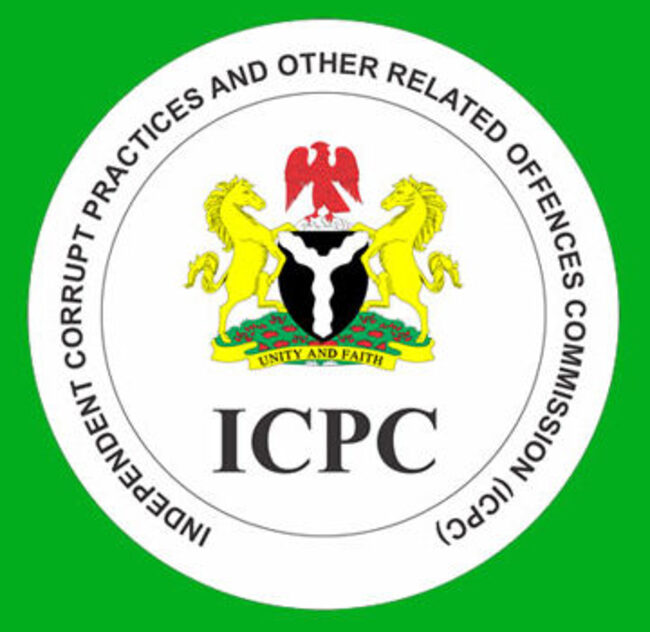The Independent Corrupt Practices and Other Related Offences Commission (ICPC), the Federal Ministry of Health and other critical stakeholders in the health sector converged in Abuja on Thursday to proffer solutions to the high level of corruption within the health sector.
At the one-day conference tagged: “Corruption-Free Primary Health Care Delivery for All” held at the ICPC’s headquarters, the Minister of Health and Social Welfare, Professor Mohammad Ali Pate stated that the challenge in the health sector was systemic and multi-institutional which is also linked to state capacity and individuals.
The Minister affirmed the need for effective collaboration between the ICPC and the Ministry, where a formidable system would be formed to tackle many of the challenges culminating into the corrupt practices in the Primary Healthcare system.
According to him, “In health, what we are trying to do is to improve the system, save lives, and reduce physical and financial pains for all Nigerians. A lot of the population has access to nothing.”
He also stated that, “So, in the disbursements of these basic needs at the Primary Health-Care level, we’ll be asking the ICPC and other law enforcement agencies to keep an eye, and we’ll be glad to have your team work with the MOC (Ministerial Oversight Committee) Secretariat to look at the facilities of all the disbursement amounts.”
The Minister further harped on the importance of accountability in the primary healthcare sector, saying with the collaboration of ICPC, deterrence could be put in place to make the sector corruption-free.
ALSO READ: Speaker Abbas lauds Tinubu on new minimum wage
Ali Pate stressed, “I really want to appreciate your invitation to us, we’ll join hands with you and I will assign a team from the ministry, the head of the anti-corruption team, one of my Senior Aides as well as others in the Ministry, to work with the counterpart from your team to develop a whole program that periodically we’ll take stock.”
He assured that, “We will work together to prevent what we can prevent, and if there are errors, we correct them. That is the way to build a system.”
In his remarks, the Chairman of ICPC, Dr. Musa Adamu Aliyu, SAN, noted that the conference was organised to stimulate discussions that will help improve service delivery devoid of windows for corrupt tendencies in the Health Sector.
He added that the Commission’s choice of the Primary Health Care in the Federal Capital Territory (F.C.T.) as the pilot for the nationwide conversation was to create a comprehensive template that can be replicated in all the six geopolitical zones of the federation.
He said that “Participants were carefully drawn from community healthcare stakeholders to have a holistic and collaborative approach to improving the effectiveness of primary healthcare service delivery.”
“This is just one of the many efforts being made by the Commission to enlist and foster public support in combating corruption in Nigeria,” he added.
The ICPC Boss also commended the interest being shown by several communities and civil societies in tackling corruption in the health sector saying one of such interests triggered the swift action from the Commission that prevented many of the dishonest conducts in the sector.
According to him, “Recently, the Sambawa community in Kebbi State sent a petition to us regarding missing ante-natal care items for pregnant women and newborn babies donated to a healthcare facility.”
He added that “Our preliminary investigation indicated that the missing diapers allocated to Sambawa Primary Healthcare Centre are 13,350 pieces, while the investigation by Kebbi State Primary Healthcare Agency puts it at 3,466.”
The ICPC Boss added “Though the two staff members of the Sambawa Primary Healthcare Centre, a male and a female, were indicted for the missing items, we intend to go all out and unravel the dishonest conduct and bring the culprits to book.”
Musa Aliyu also expressed a strong belief the signing of a Memorandum of Understanding between the ICPC and the Ministry of Health most especially on the Corruption Risk Assessment Implementation Steering Committee, will provide opportunities for the cross-pollination of anti-corruption ideas and harness potential and all available resources to address issues that hinder people from enjoying a corruption-free healthcare system in Nigeria.
In her keynote address, the Federal Capital Territory Authority’s Mandate Secretary, Health Services and Environment, Dr, Adedolapo Fasawe, decried how corruption has hampered and continues to bedevil the Primary Health Care service delivery in Nigeria saying that there was need to adopt the public health approach to making the PHC system corruption free.
She stressed that “Rather than detecting the corruption after it has been committed, audit and petition style, it must be prevented and if it occurs, must be detected that is Outbreak Control as soon as possible through the use of sensitive tools, Surveillance.”
According to her, “The Governance and Leadership building block is also very key to engendering the corruption-free Primary Health Care delivery for all. Honest and competent leadership at key positions in the PHC and health system will clean the Aegean stable.”
Adedolapo Fasawe added that “This can only be achieved if competent, transparent, and proven professionals are in place to manage the PHC system. Therefore, policies and laws must be in place to ensure that filling of these managerial positions are merit based, and continued occupation of these offices is based on performance,” as contained in a statement signed by Demola Bakare, Ag. Director, Public Enlightenment and Education/Spokesperson for the Commission.
NIGERIAN TRIBUNE
